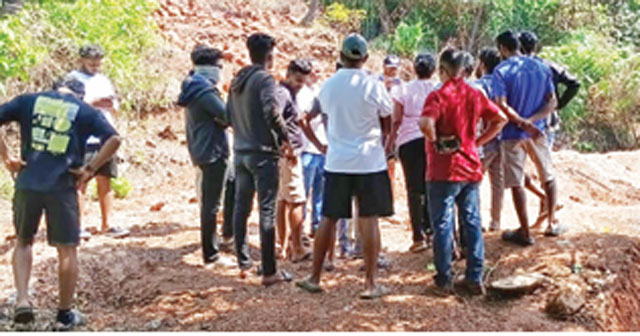Daijiworld Media Network – Panaji
Panaji, Oct 24: The ongoing debate over the construction of an anti-sea erosion wall at Anjuna, linked to Siolim MLA Delilah Lobo and Calangute MLA Michael Lobo, has brought the functioning of the Water Resources Department (WRD) into focus. Current and former engineers have offered varied opinions on whether the department can legally undertake works for private parties.
Most engineers agree that the WRD can execute private projects, but only under strict conditions: the government must approve the work, and the private party must bear the full cost. Instances of such work are rare and treated as exceptions rather than routine practice.

A recently retired WRD engineer explained that projects can be undertaken for private entities if the government directs it and the costs, along with departmental charges, are paid by the party requesting the work. Some projects, including those for institutions like the National Institute of Oceanography, have followed this model.
Another ex-senior WRD engineer noted that the department prepares estimates for private works, which the party must pay in full along with a 15% supervision fee. Serving engineers highlighted that the work must fall within the WRD’s functional scope and require all mandatory clearances, including Coastal Regulation Zone (CRZ) permissions.
“Departmental work is generally for the benefit of the wider community. Individual projects are rarely undertaken,” said one senior engineer.
MLA Delilah Lobo, however, defended the Anjuna project, stating that all necessary approvals were obtained, no taxpayer money was involved, and the WRD was executing the work after the requisite payments were made. CRZ clearance for the wall had also been secured, she added.
The differing opinions within the WRD underscore that while the department can execute private works, the practice remains tightly regulated and contingent on government sanction, a key point as the Anjuna controversy continues.